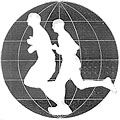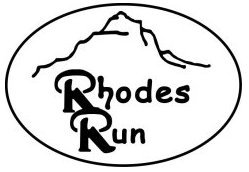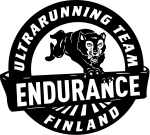World Run II / Reports
|
Loading...
|
|
The map shows the position of which the pictures for the day are taken (if any).
The start and finish markers are placed at the first and last valid registered position.
This is not nessesary the actual start and finish position, if GSM or GPS signals was not available.
|
Goto:
![]() 2011-10-26
2011-10-26
![]() 2011-10-28
2011-10-28
![]() Equador
Equador
Distance today: 10.0 km (Accumulated: 29607.0 km)
Elapsed time: 49:40:00
Country: Equador
Start 10:10am., 26c, cloudy & light wind, at cross of Calle Dr. Angel Martinez Luna & hwy. E35 to Quito, at North end of Riobamba. Finish 11:00am., 27c & same, at km-stone "159" on hwy. E35 to Quito.
As bad as it gets' ;-))
During the world run's I sometimes do a "tempo-test" to see how the accumulated distance affects the legs and the ability to maintain a fast pace. These stages are conducted as a 10km run, exactly measured by the gps-tracker I run with on all stages.
The last one I did was in Argentina, approximately 2000km after Punta Arenas, at an accumulated distance of 23 000km in wr2. At that time I did a fairly controlled run with slightly negative splits (last half faster than the first) as I usually try to do on all stages of the world run - it makes it easier for the legs & body to recover to the next day, as opposed to when one pushes' full scale on the early km's and then later has to let go of the control of the pace and slowly decline as the legs are unable to keep up the pace.
The 10km test of today.... Was not a 'negative splits' run, its safe to say. Further it was 10minutes slower than the test 6000km ago in Argentina. Naturally some of the explanation could be that it was conducted at around 3000m. altitude, and with uphills on 7km out of the 10km's.
Yet still. 49min. for 10km.
What to say ;-)))
I fully respect that the time, pace & distance is individual for each athlete and that no time can be said to be "slow" or "fast" unless one consideres the runners potential. 49min. can be good in some cases and can even be a struggle and an achievement - In my oppinion running hardly get more intense or 'difficult' than when a recreational runner pushes her- or himself to the limit; because the body in that case is much less used to be put at its extreme ! I much respect that kind of effort and clearly remember how that feel, even though its now a few years since I was in that situation (1982-83 when I started as a recreational runner).
But as said; the effort has to be measured against what the personal potential is. And, Ahem....., Atleast 10years ago that potential was nearly 20minutes faster. With a pb. of 31:29min. on 10km back in the road-racing days - its beyond embarrasing to at MAX effort put in a time 19min. slower. Even though it sounds un-sportsmanslike I have to admid that I was cursing the last 5km's as it became obvious to me that I couldnt raise the pace.
- You judge from the gps-track (the endomondo link below this report, choose the 10km stage of 27. Oct.), how much of a factor the altitude and hills were ! I dont think they can account for more than 2-3min. extra at the most. That leaves the explanation of the 7-8min. difference compared w. the test in Argentina 6000km ago.
Is 29 000km that hard on the body ?
I think it is !
NB: At the moment I am not able to upload the pictures from the stage. They will be uploaded w. a short delay depending on when I get the upload interface working again. But I think everyone can do without seeing the pic. of a tired runner grinding his teeth ;-)











